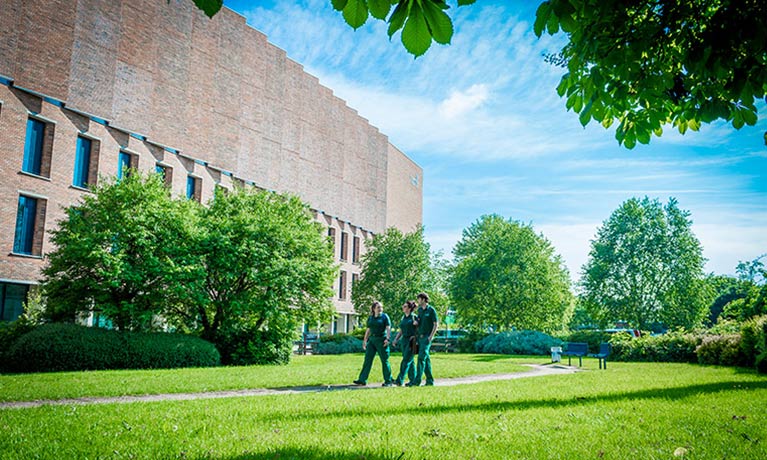
Dr. Sharon Williams
Course Director for BSc Forensic science
School of Life Sciences
Faculty of Health and Life Sciences
About
I have a PhD in Biochemistry and I previously worked as a post doctorate research fellow in both the Biology and Chemistry departments of Warwick University, between 2002 and 2010. My research focused on the biophysics and biochemistry of proteins, and understanding the mechanisms of enzymes. I have a wide range and depth of research experience in molecular biology, biochemistry, and chemistry.I am a member of the Royal Society of Chemistry and I am involved in many projects related to the society. I have joined Coventry University as a lecturer in Biomedical Science in November 2014 to continue my research into exploring enzymes mechanism in general and lignin degradation in particular.
Qualifications
- PhD
- Senior Fellow of HEA PgCert
- Member of the Royal Society of Chemistry
- Level 7 Postgraduate Diploma in Business Administration
Research
I am very interested in applications for industrial biotechnology that could be developed and characterise novel bio products obtained by enzymatic oxidation of lignin. In addition, lignin degradation would release valuable low molecular weight aromatic chemicals that would add considerable value to biofuel production.
My other interest is the twin-arginine translocation, or Tat pathway. In this pathway, substrates are synthesised with N-terminal signal peptides containing a key twin-arginine motif. The proteins are then transported by a membrane-bound Tat translocon, which is uniquely able to transport fully folded proteins across the tightly coupled plasma membrane. One of the interests is how the system can be exploited for the production of high-value therapeutic proteins and also development of drug targets.
Recent projects
- Exploring unique compounds from lignin and rubber degradation using MnSOD and
- Dyp-type peroxidises.
- Exploring the twin-arginine translocation pathway and linking it to drug development.
- Enzymes of the phenylpropionate catabolic pathway in E.coli.
Recent outputs and publications
- Rahman Pour, R., Ehibhatiomhan, A., Huang, Y., Ashley, B., Rashid G. M., Mendel-Williams, S and T.D.H. Bugg. (2019) Protein engineering of Pseudomonas fluorescens peroxidase Dyp1B for oxidation of phenolic and polymeric lignin substrates. Enzyme and Microbial Technology 123, 21-29.
- Johnson, M ., Danvers, E., Hinton-Smith T., Atkinson, K,m Bowden, G., Foster, J., Garner K., Greaves, S., Harris, P,, Hill D., Jackson, L., O’Sullivan., a., Brown P, Williams S. (2019) Examining Key Challenges For Academics. British Journal of Educational
- Fakayode O.J, Williams S., Adekunle A.S and Nkambule T. (2020) Detection of humic acid in water using flat-sheet and folded-rod viscous alkaline glucose syrups Analyst, DOI: 10.1039/C9AN02083G
- Ehibhatiomhan, A., Rahman Pour, Sebastien Farnaud., T.D.H. Bugg and Mendel Williams, S. (2023) Periplasmic expression of Pseudomonas fluorescens peroxidase Dyp1B and site-directed mutant Dyp1B enzymes enhances polymeric lignin degradation activity in Pseudomonas putida KT2440 Enzyme and Microbial Technology Journal. 162(6):110147
- Sousa Correia M and Mendel Williams, S. (2025) Comparative Study of the Twin Arginine Translocase (Tat) System Across Bacterial Species: Insights into Hydrophobic Interactions, Signal Peptide Binding and Protein Translocation Dynamics Computational Biology and Bioinformatics (Volume 13, Issue 1) DOI: https://doi.org/10.11648/j.cbb.20251301.13
Teaching Modules
- Skills in Biomolecular sciences 1
- Skills in Biomolecular sciences 2
- Biology for chemists
- Biochemistry and Microbiology
- Molecular Genetics
- Contemporary skills for Biomolecular Sciences 1
- Contemporary skills for Biomolecular Sciences 2
- Biomolecular Analysis
- Professional experience sandwich year
- Research design for biomolecular sciences
- Independent project in biomolecular sciences
Areas of Expertise
- Biophysics and biochemistry of proteins
- Mechanisms of enzymes
- Molecular biology, genetics and PCR
- Bioinformatics




